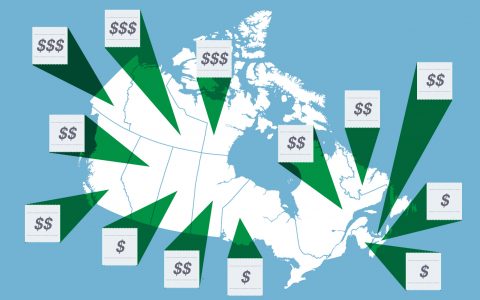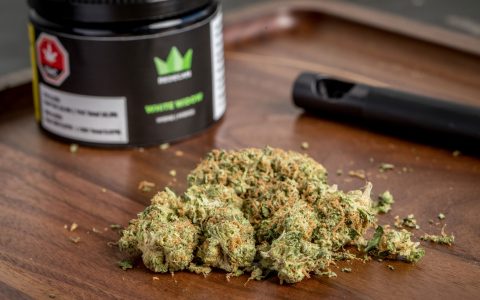Saying that Canada’s cannabis rollout has been a rocky road would be a huge understatement. Since Oct. 2018, consumers have been faced with limited access, supply shortages, and steep prices.
And, while all levels of government seem to be attempting to address and accommodate access and supply problems, one issue that has not been properly addressed, however; is price transparency and price competition.
Black market prices are around $3, nearly 50%, cheaper per gram when compared to legal cannabis, according to Statistics Canada. Because of poor access, and high prices, one-third of all cannabis consumers purchase cannabis illegally and avoid the legal market altogether.
Sticker Shock
For consumers in provinces with legal storefronts, one concern being voiced is that they don’t know what prices will look like prior to entering the store. Cannabis advertising, which is incredibly over-regulated, never includes any information about prices at the various outlets. Some may think that the lack of price transparency is an attempt by retailers to get away with high markups, but there is more at play here.
The lack of price transparency from cannabis retailers is a result of the federal government making it illegal for retailers to advertise any information regarding price. More specifically, Section 17 (1) of the Cannabis Act states:
Unless authorized under this Act, it is prohibited to promote cannabis or a cannabis accessory or any service related to cannabis, including
(a) by communicating information about its price or distribution;
The only exception to this rule is that retailers are allowed to advertise price and availability at the point of sale, meaning once consumers have actually entered the store. Thus, the federal government has actually mandated that retailers be less transparent in their advertising, which can impede consumer choice.
Why Price Transparency Matters
The lack of price transparency mandated by the federal government is problematic for three reasons:
If price transparency is discouraged, it becomes far more difficult for consumers to actually know if prices are too high and adjust their purchase decisions accordingly.
The first is that this rule contrary to how alcohol brands and retailers promote their products. Across Canada alcohol retailers regularly advertise prices, whether they be private stores (in provinces like Alberta) or government-run stores (like the LCBO in Ontario). Consumers of alcoholic beverages will routinely see advertisements specifying pricing, or hear radio advertisements announcing upcoming sales. It is silly and misguided to allow such advertisements for alcohol, but not for cannabis.
The second reason why a lack of price transparency is a problem is that it prevents competition. If consumers could know cannabis pricing in advance, that would force retailers to more appropriately compete against each other.
Competition like this would make for a more consumer-focused marketplace, while also putting some downward pressure on pricing overall. Allowing retailers to advertise, letting consumers know that their products are at a better price point than a competitor, results in more purchasing power for consumers and more accountability on the side of retailers.
For example, if consumers are able to better compare pricing from store to store, then they are far more empowered to hold retailers accountable if their prices are exorbitant. As in any open market, consumers should be able to protest with their wallet and take their business elsewhere.
If markups are too high at one store versus another, consumer demand can shift accordingly. Right now that shift is largely non-existent because consumers would have to physically enter each storefront to compare.
Unfortunately, if price transparency is discouraged via government mandate, it becomes far more difficult for consumers to actually know if prices are too high when compared to other legal outlets and adjust their purchasing decisions.
Lastly, a lack of price transparency is problematic because price transparency is needed to help stamp out the black market. Price transparency in the legal market allows consumers to know when the legal market can compete with the black market and shift their behaviour accordingly.
Ideally, retailers would be able to advertise future sales or discounts, which could help attract the 33% of consumers who have not yet made the switch to the legal market. Once those consumers are exposed to the legal market, they are much more likely to remain in it given the protections that come with legal transactions.
Price transparency increases competition creates for more consumer-friendly pricing and helps encourage consumers to purchase cannabis legally. The federal government reversing its ban on price advertising would be one step in the right direction and could help Canada smooth out the rocky path that legalization has been thus far.



















